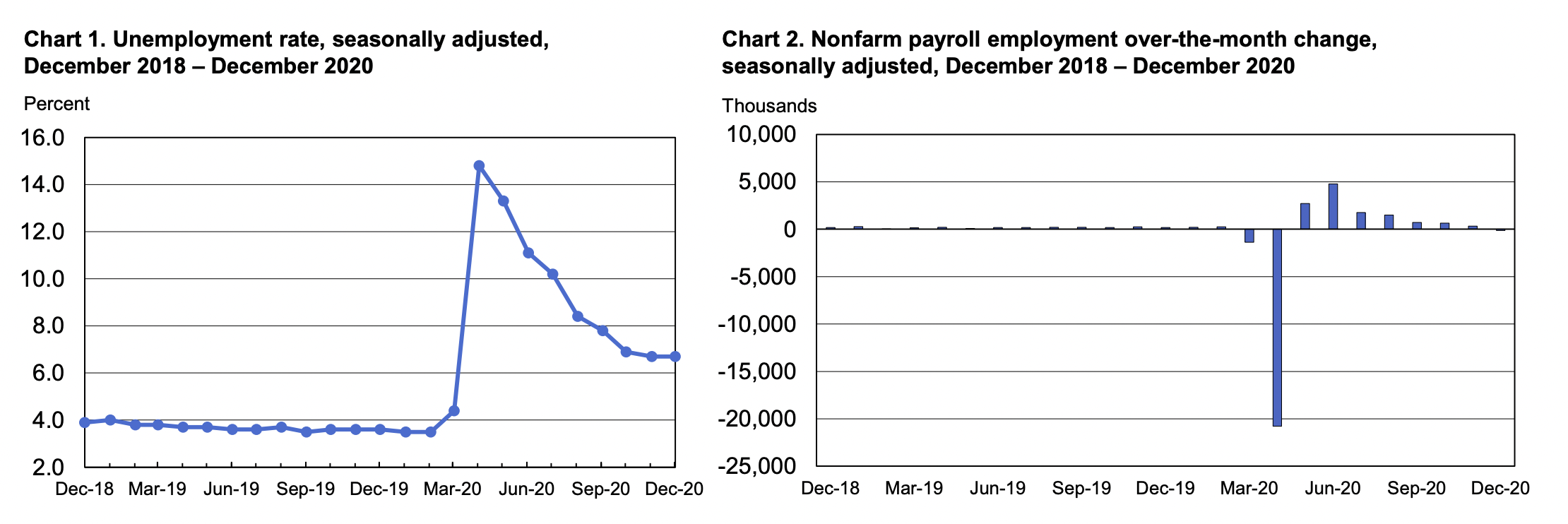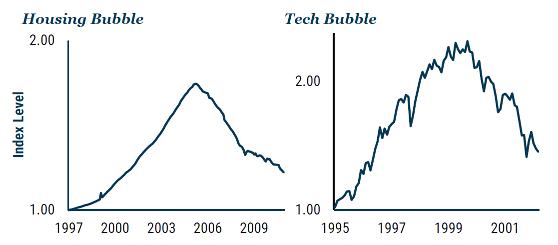Jeremy Grantham's four signs of an upcoming crash

Livewire Markets
When Jeremy Grantham speaks, the market listens, and he believes the market is on the brink of a catastrophic downturn that will rival the 1929 Wall Street crash. Prolific investor and co-founder of investment management firm Grantham, Mayo and van Otterloo (GMO), Grantham has once again clanged the warning bells for Doomsday, saying the market has until the end of the vaccine rollout before the bubble bursts.
Having picked the return of the bull market in 2009 and neatly sidestepped the dot-com crash, Grantham's prescient market calls are worth paying attention to.
Armed with decades of experience in investing and an uncanny track record for his oracle-like predictions, Grantham now offers us some detailed insight into his ominous warnings and his principles of investing in his latest interview with Bloomberg, which has been watched over a million times (see below).
Grantham's four signs of an upcoming crash
1. When overconfidence has reached its peak
Perhaps ironically, if the market is feeling good, then it shouldn't. Grantham looks for when market exuberance is at a high and warns this is when investors should be more cautious.
“When confidence has reached these levels, history books are pretty clear,” Grantham told Bloomberg last week. "It's very difficult to increase your enthusiasm from a state of mild hysteria where we are today."
When investors are overly confident and they believe that stocks will forever go up, they will borrow to fuel the frenzy and one of the great demonstrations of confidence is an increase in borrowing to "throw it into the market".
Grantham has also written about these fears in his latest wire touching upon the imminent post-vaccine reality check.
Investors are all riding on the optimism of the COVID-19 vaccine roll out but the emotional high could crash once the vaccine is in place. “Market participants will breathe a sigh of relief, look around, and immediately realise that the economy is still in poor shape,” Grantham said.
2. Stocks which are overvalued and underproducing
Overvaluation on its own isn't a sign of impending doom, but there needs to be a watchful eye on the underlying numbers. Grantham says that overvaluation can drag on for years, but he notes a concerning trend of overvalued companies with no sales, no profits and yet are some of the biggest companies on the market.
"We live in a world that is, in the end, a real world of people and production," says Grantham, so despite all the confidence in the world, investors need to go back to basics.
“My own stock in Quantum Scape, came into the market at USD10 and shot up to USD130. It was bigger than General Motors or Panasonic. And this is a brilliant company, but it has no trouble admitting that it won't be producing any batteries for four years," Grantham tells us. It's illustrative of the nature of many tech stocks today and the fears they are burning cash while being years away from production.
3. High unemployment levels and no levers for the central banks
In March 2020, the US Federal Government announced a raft of monetary policy to reduce the economic impacts of COVID-19. But unemployment rates have not recovered, and the Feds have pulled nearly all the available levers they have in order to keep markets afloat.
"If you go back to before COVID what you see is we have lost considerable strength in the economy," says Grantham.
"We have fewer people working, and we have a reduced stream of goods and services, and yet the price is much higher… You can have a lot of rescues when you have a long US Government bond at 16%. At the lowest rates in history, you don't have a lot to put on the table."

Source: US Bureau of Labor Statistics
4. Bubbles don’t always burst alike
In the 2000 dot-com bust, the market went down in pieces. Grantham recounts to Bloomberg how first the “little guys” went down, while the rest of the market continued to rise. Then the junior growth stocks fell, then the medium growth stocks followed, and eventually, the market succumbed to death by a thousand cuts.

Source: GMO; Livewire Markets
But Grantham warns that not all bubbles burst alike, and the bubble can ride on for a long time in a holding pattern. The problem with a bubble is not that you don’t realise you’re in it – it’s that you don’t realise when it’s game over.
So, is it the end of the world yet?
Grantham notes in his wire that to nail the timing on a bubble is a career risk. You can either call the bubble too early or “ride over the cliff every cycle”. Certainly, GMO has been criticised for being cautious to the point where investors have exited stage left to the tune of $2.2 billion, leaving the fund in search of more bullish pastures.
While the economic principles Grantham has put forward above are sound, the market is prone to disruption and the vagaries of human behaviour and emotional investing. There could be a new hope following the COVID-19 vaccine which stretches optimism a bit further down the road.
Fortune-telling is imperfect, but time will tell.
Never miss an insight
Enjoy this wire? Hit the ‘like’ button to let us know. Stay up to date with my content by hitting the ‘follow’ button below and you’ll be notified every time I post a wire. Not already a Livewire member? Sign up today to get free access to investment ideas and strategies from Australia’s leading investors.
4 topics
1 contributor mentioned

Mia Kwok is a former content editor at Livewire Markets. Mia has extensive experience in media and communications for business, financial services and policy. Mia has written for and edited several business and finance publications, such as...
